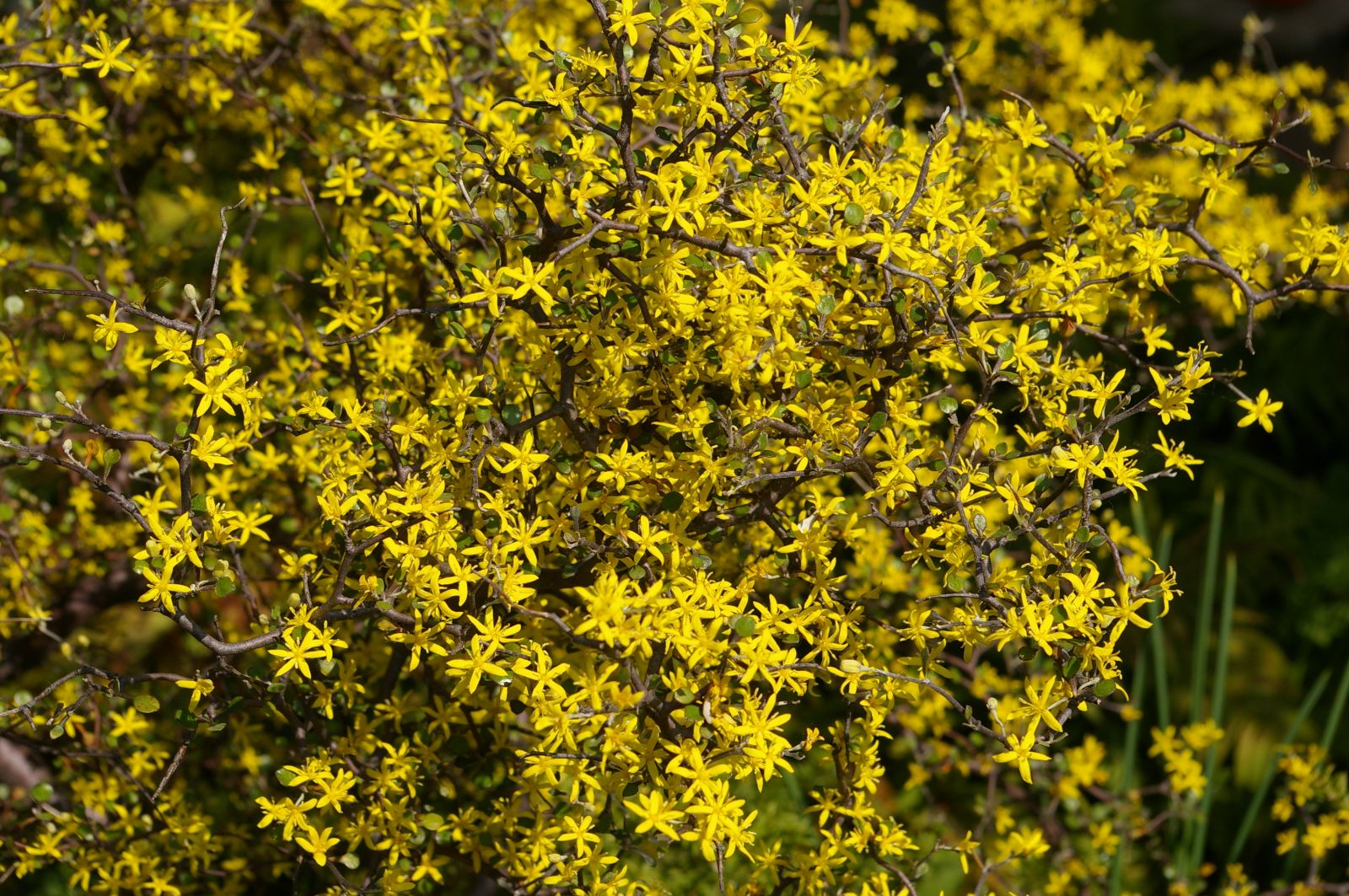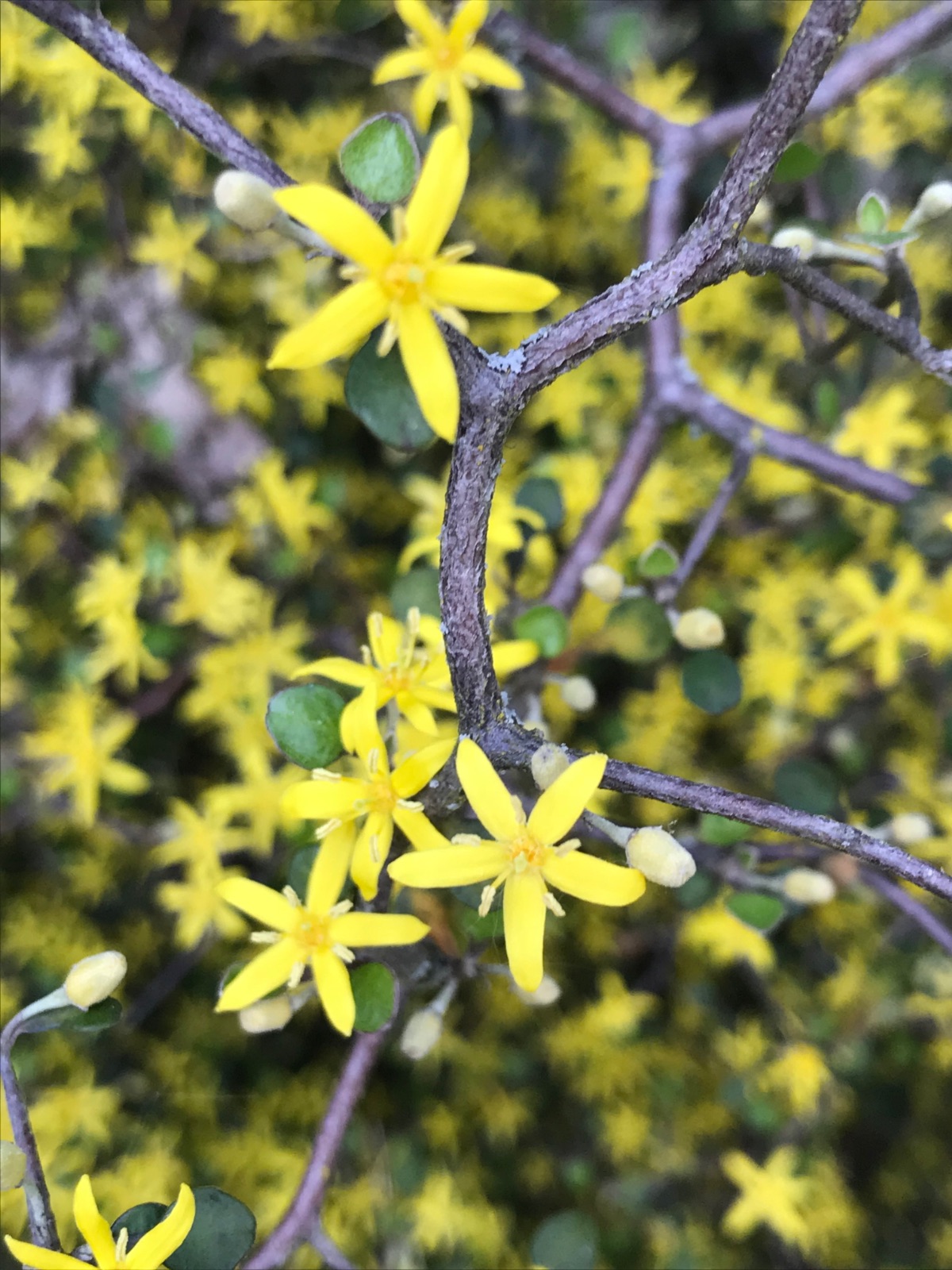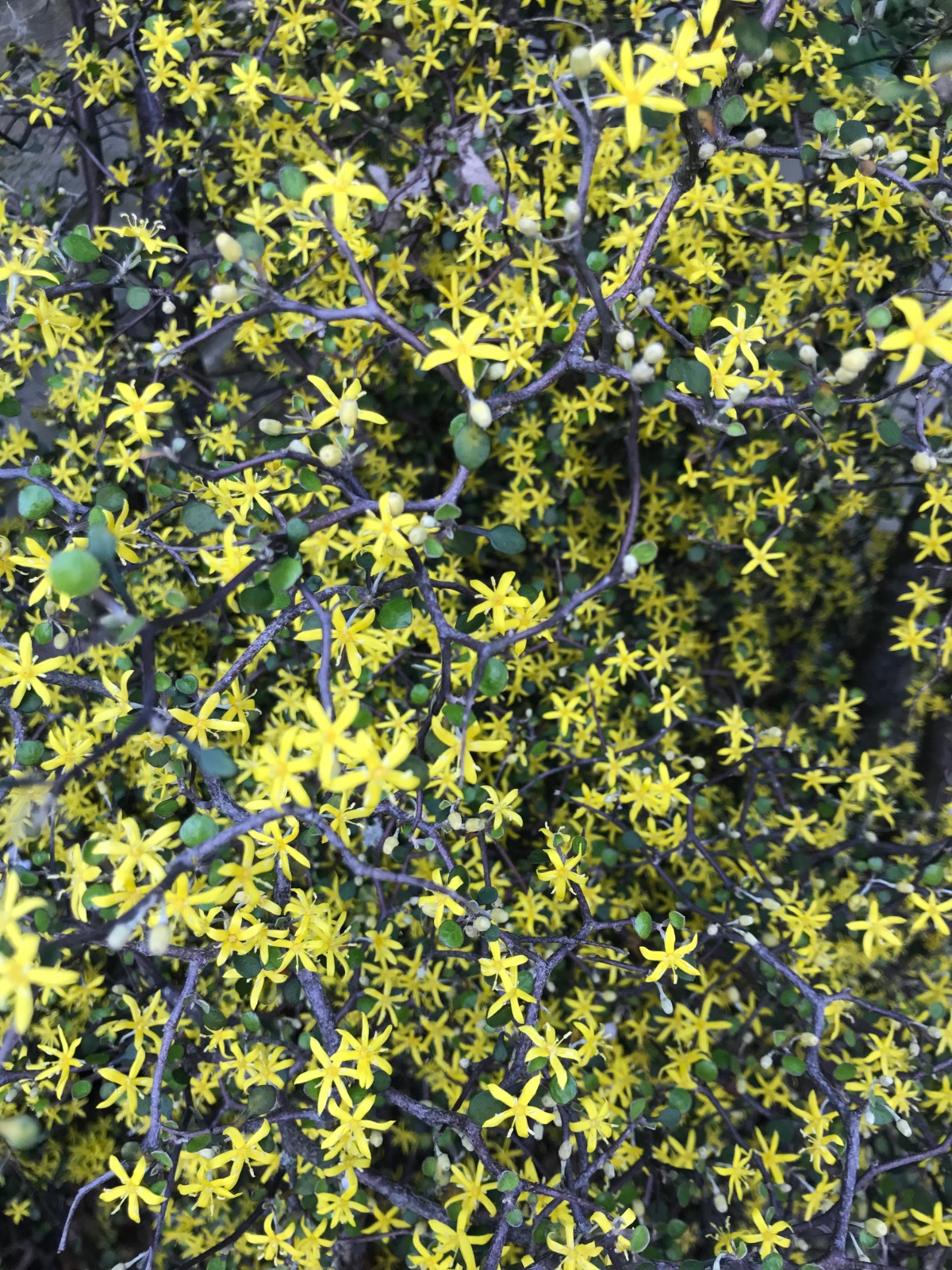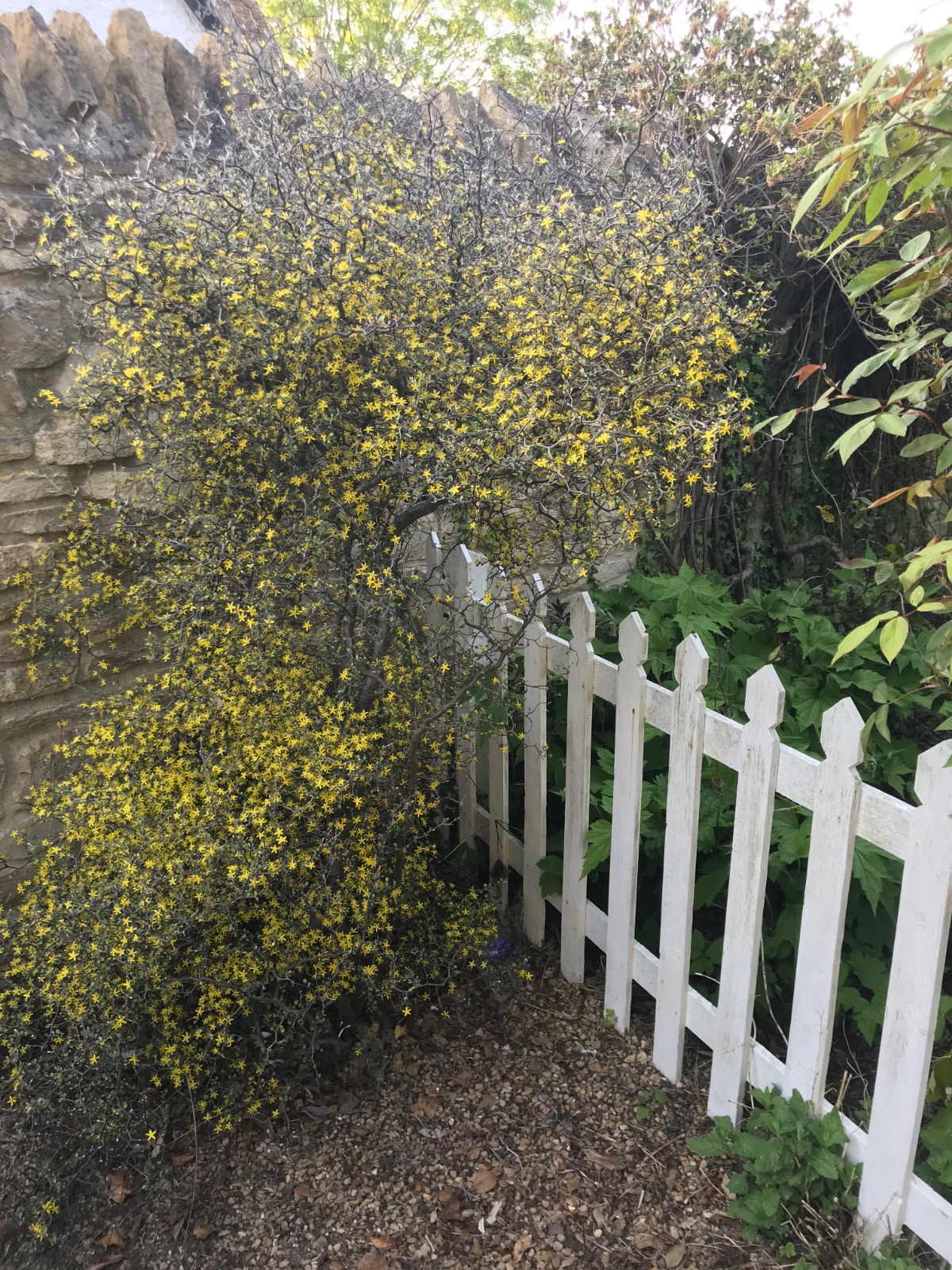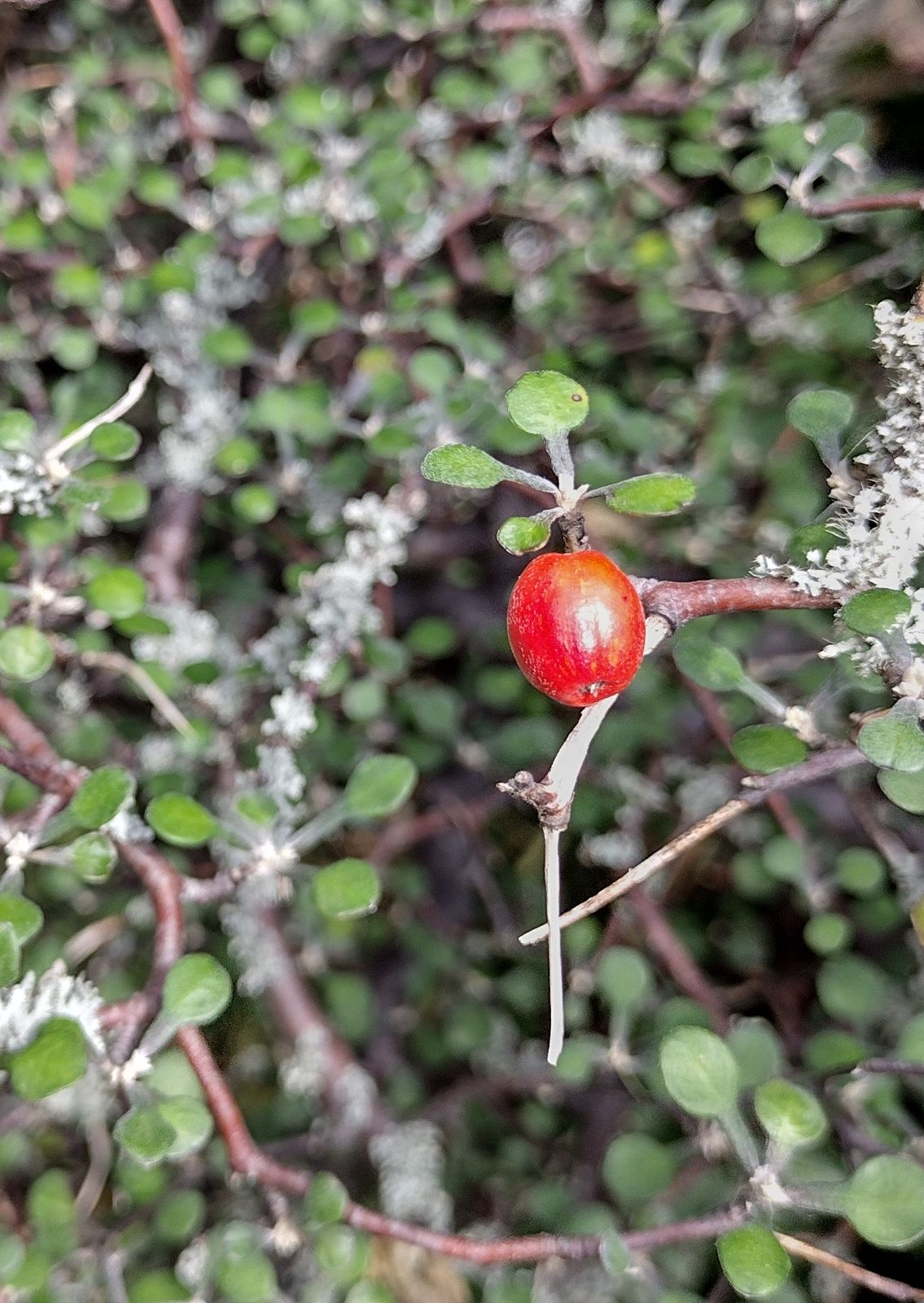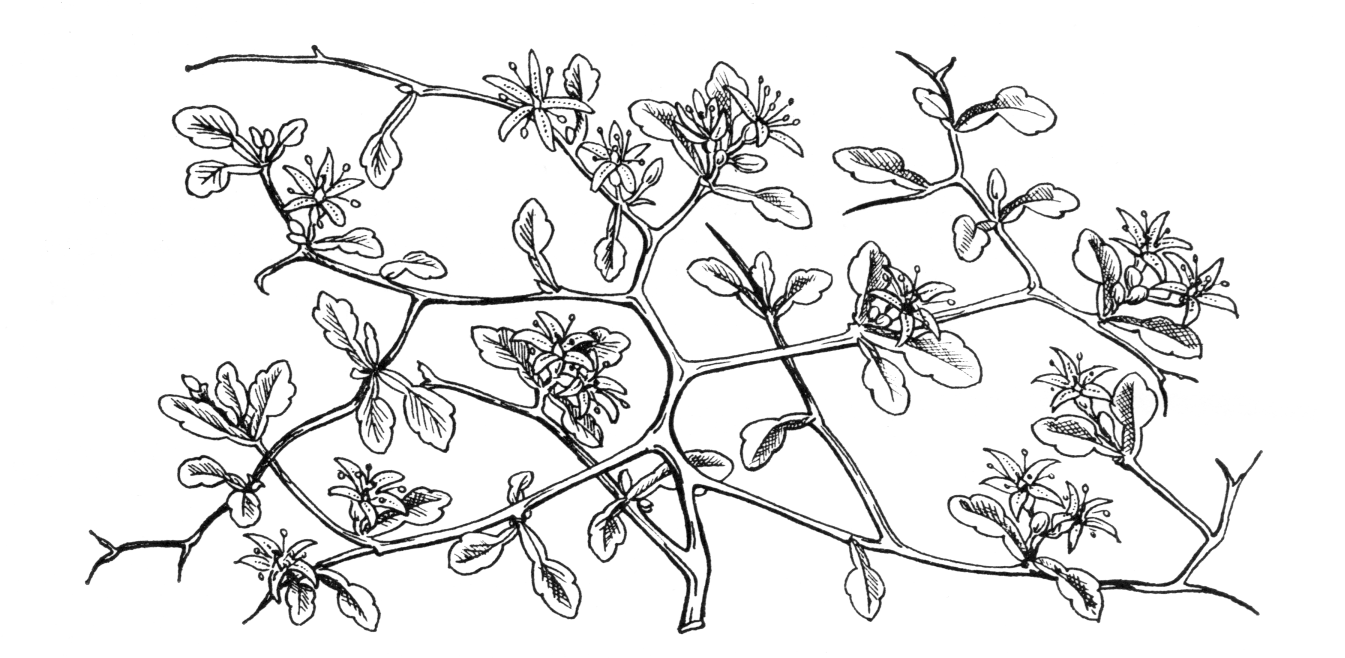Corokia cotoneaster
Credits
Article from Bean's Trees and Shrubs Hardy in the British Isles
Recommended citation
'Corokia cotoneaster' from the website Trees and Shrubs Online (treesandshrubsonline.
Genus
A remarkable evergreen, but sparsely leaved shrub up to 8 ft in height forming a rounded bush; branches thin, exceedingly tortuous and interlaced somewhat rigid, and covered with white down when young, becoming almost black with age. Leaves alternate, 1⁄2 to 3⁄4 in. long (including the broad, flat stalk), roundish ovate or obovate, 1⁄4 to 1⁄3 in. wide, glabrous, and dark green above, covered beneath with a white felt. Flowers star-shaped, bright yellow, 1⁄2 in. across, short-stalked, solitary, or as many as four in the leaf-axils; petals five, narrowly linear, pointed, silky at the back; calyx silky white, with five short, ovate lobes. Fruit red, round or oblong, 1⁄4 to 1⁄3 in. long. Bot. Mag., t. 8425.
Native of New Zealand; introduced about 1875. At Kew this curious shrub needs the protection of a wall, where it thrives very well, and where its contorted branches, thin entangled twigs, and tiny spoon-shaped leaves are a perennial source of interest to visitors. It blossoms in May, and although not showy is decidedly pretty and interesting. The fruits have ripened in the vicarage garden at Bitton, and in shape and colour are not unlike small Cornelian cherries. At Castlewellan in Northern Ireland it has made a bush 8 ft high and 20 yds in circumference. With protection from cold winds it is hardy enough to be grown in the open ground except in the coldest parts of the country.

